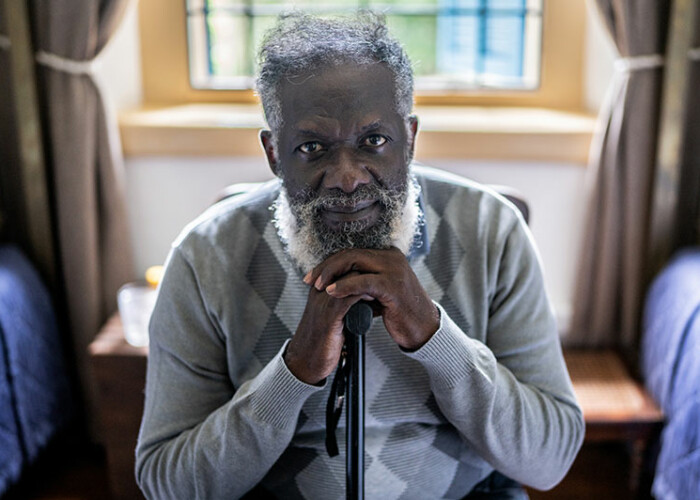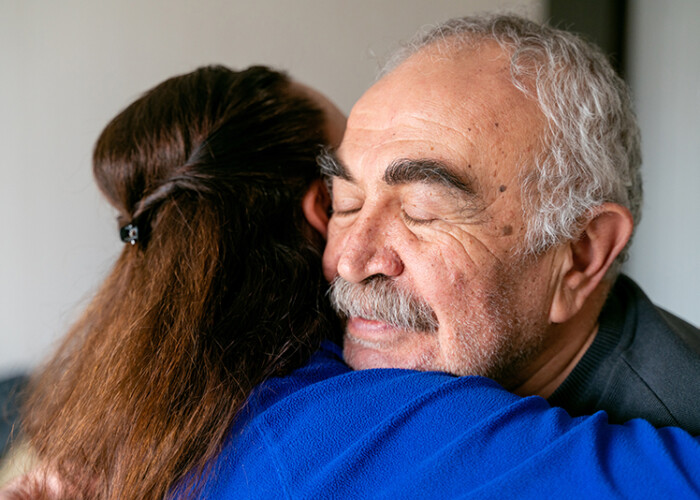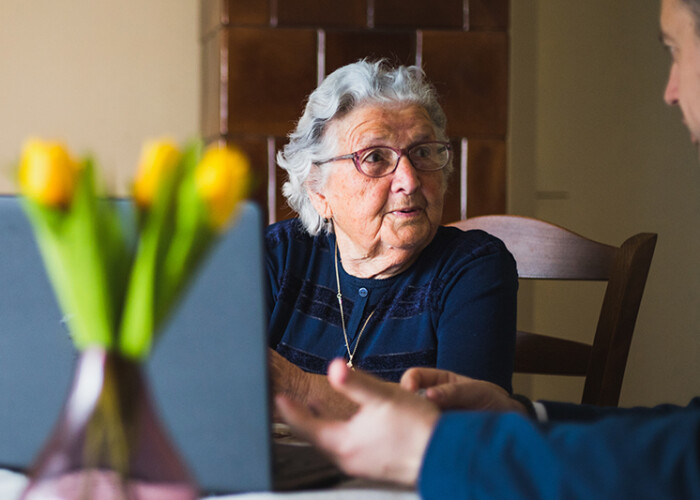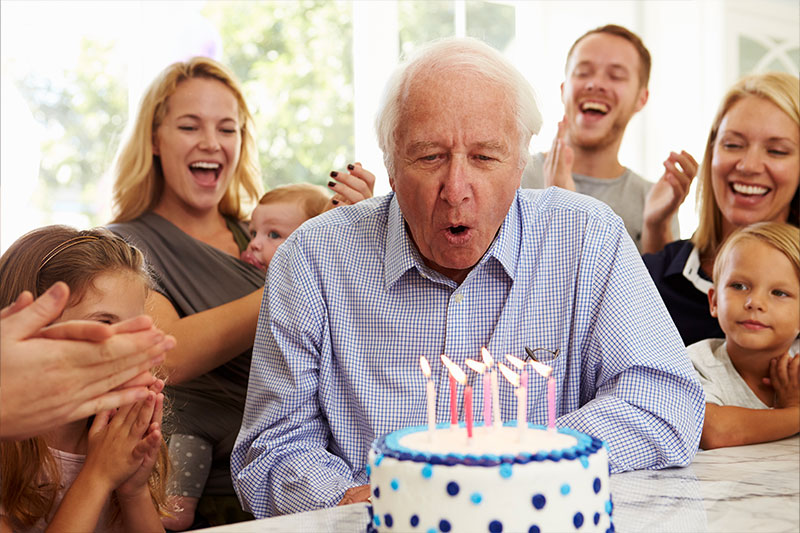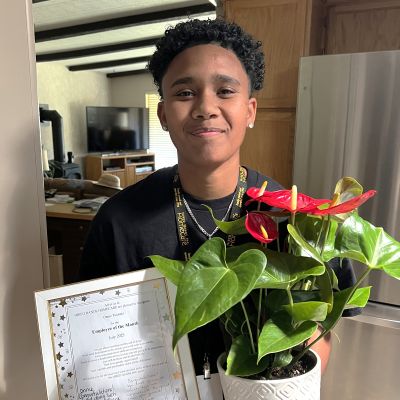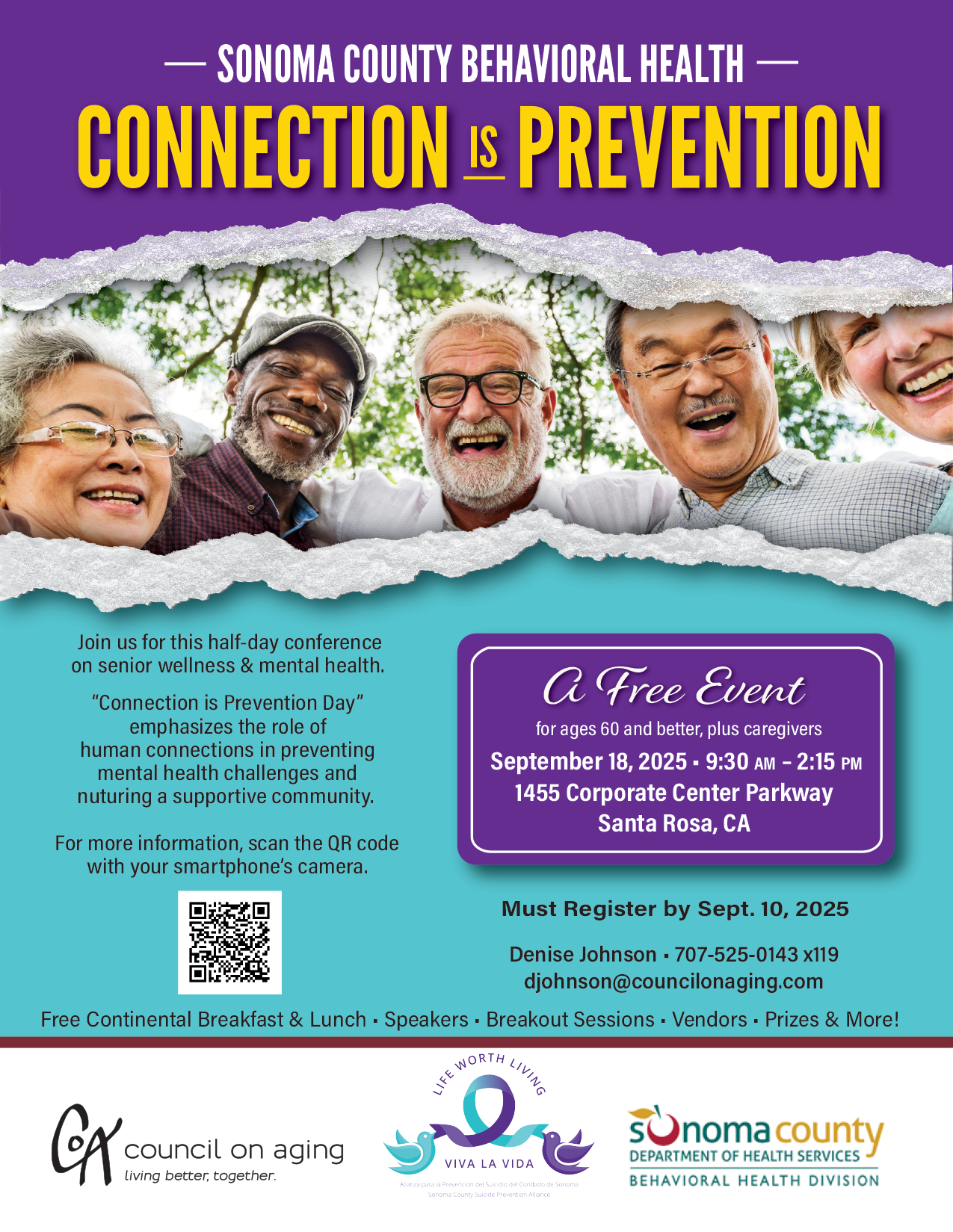Respite Care
We Can Help You Avoid Caregiver Isolation
Caregiver isolation doesn’t have to be a part of your caregiver experience.
It may seem counterintuitive, but spending all your time taking care of someone else can make you feel extremely alone. The hard truth is that caregiver isolation is very common for a number of reasons:
• Feeling guilty about any time you don’t spend with the person you care for
• Being mentally or physically exhausted: you are simply too drained to want to socialize
• Resentment toward those whose lives seem so much simpler
• And much more
While experiencing the loneliness of caregiving can feel overwhelming, it’s important to take the proper steps to fight back. Social isolation can lead to serious health concerns, such as heart problems, depression, stroke, high blood pressure, and difficulties with attention and memory, just to name a few.
Read More »
What People With Alzheimer’s Want You to Know
Improve communication with someone you love by learning what people with Alzheimer’s want you to know.
If you’ve ever wished you could look a senior with dementia in the eye and understand exactly what they’re thinking, we just might be able to help you with that! Communicating effectively with someone with dementia isn’t easy, especially as the disease progresses. Following are several statements provided by people with Alzheimer’s to give you some insight into what it feels like to live with the disease.
You haven’t lost me. A diagnosis of dementia does impact a person in many ways, but it doesn’t change the essence of who they are. “I love the same people and doing the same things I did before my diagnosis,” explains Dale Rivard. It’s essential to recognize that while memory and cognitive abilities may decline, the … Read More »
Feeling Overloaded With Caring for a Loved One? These Tips Can Help!
If you’re feeling overloaded with caring for a loved one, we have three simple steps you can take to ease the strain.
If today’s to-dos seem like a lot more than you are able to possibly squeeze into 24 short hours, you are not alone! Family caregivers frequently are feeling overloaded with caring for a loved one and the daily required tasks: Personal care and hygiene. Planning and preparing meals. Medical appointments. Planning activities that are purposeful and enjoyable for the older adult. Shopping and other errands. Housework and laundry. And all of this is on top of meeting the requirements of your own spouse, children, household, and if there is any time left over, yourself!
We invite you to hit the pause button for just a minute, take a deep breath, and put into action these tried-and-true … Read More »
The Final Stage of Alzheimer’s: What to Expect
Being prepared for the final stage of Alzheimer’s is key to continuing to help make life as meaningful as possible for someone you love.
The journey through Alzheimer’s disease can be compared to navigating a winding road that spans years, riddled with intermittent stops, starts, unexpected twists, and a plethora of unknowns. As the dedicated caregiver for an individual grappling with dementia, having foresight about what to expect around the next bend is paramount. This knowledge empowers you to not only be well-prepared but also to administer the most fitting and compassionate level of care in the final stage of Alzheimer’s.
Alzheimer’s, being a highly individualized experience, manifests uniquely in each person. Yet there are certain commonalities at every stage of the disease. When an individual transitions into the last stage, discernible challenges emerge, including struggles with eating … Read More »
Why Alzheimer’s Caregivers Say They Need to Go It Alone – And Why It’s a Bad Idea
“You can make it, but it’s easier if you don’t have to do it alone.” – Betty Ford
Alzheimer’s caregivers may feel as though they are the only ones who can provide the best care for an older loved one, but finding a care partner is vitally important.
As a family member caring for a loved one with dementia, you know firsthand how challenging it can be. It’s definitely never a role that Alzheimer’s caregivers should try to fill on their own. Yet, many caregivers struggle with seeking the support they need, intensifying stress and leaving minimal room for self-care, a vital aspect for those in caregiving roles.
See if you can relate to these top reasons given by family caregivers for attempting to provide care solo, and why they need to be reconsidered:
Dad would not want another … Read More »
3 Steps to Better Advocate for an Aging Parent
Trusting someone you love to the care of someone else is never easy, particularly for a senior family member. Whether at home or in a facility, you’ll have questions you need answered. You will also want to be ready to advocate for an aging parent to proactively address any potential problems and also to quickly take care of issues that do take place.
For instance, review the following common situations and how to most effectively advocate should they arise with an older adult you love:
The person has dementia. A loved one with Alzheimer’s might not be able to effectively communicate their wishes and needs. As an example, a new caregiver may not realize that Dad wears inserts in his shoes and she may put his shoes on each day without them. Dad may not know how to communicate this … Read More »
How to Get Away From It All While Caring for an Older Loved One
Dreaming of that perfect vacation while listening to friends and family share tales of exciting getaways? The desire to travel and escape reality for a little while is universal, but when you are caring for an older loved one, it might seem like an unattainable luxury. However, taking a break is not just possible; it’s crucial for both your well-being and the well-being of your older family member.
Why Taking a Break Matters
Neglecting self-care can lead to burnout and depression, ultimately affecting the quality of care you provide. So how can you step away and know that the individual you’re caring for will remain safe and well while you’re gone?
These tips are a great place to start:
Talk About It. Initiating a conversation with the older adult about your upcoming break is a crucial step. Transparency builds trust … Read More »
What to Do When an Older Adult Refuses to Pay for Care
Many of today’s older adults grew up during the Great Depression. They lived through a time when the country was cutting corners and pinching pennies. Frugality was embedded in many of them at an early age and quite often remains firmly in place for life.
So what can you do when an older adult refuses to pay for care, even though they clearly are in need of care at home and have the financial ability to pay for the care?
First, empathize. Understand that the person’s perspective is valid and determined by past life experiences. If the older adult seems to be resistant to the idea of spending money for the care they need, remind yourself of the emotions behind the behaviors. An additional layer of difficulty may be in simply accepting the need for care altogether, something that … Read More »
How to Manage Feeling Unappreciated as a Caregiver
These three simple steps can help if you’re feeling unappreciated as a caregiver.
From the moment you started your day until its end, you’ve dedicated yourself entirely to the well-being of an older loved one. Your tasks ranged from assisting with daily activities to managing appointments and household chores, all performed with love and dedication. Yet, the acknowledgment you deserve is often absent, leaving you feeling unappreciated as a caregiver. Left unchecked, this can lead to caregiver burnout or depression.
If you’re experiencing this, know that you’re not alone. Here are some tips to help navigate and address the challenge of feeling unappreciated in your caregiving role.
1. Practice Self-Appreciation:
Acknowledge the importance of the work you’re doing and prioritize self-appreciation. Take a moment each week to reward yourself for a job well done. It … Read More »
Ease the Strain of Working and Caregiving With These Tips
Working and caregiving together isn’t easy, but these tips can help you find a healthier life balance.
The far-reaching impacts of the pandemic have touched every aspect of our lives, creating unprecedented challenges for many, especially those juggling the responsibilities of both working and caregiving for senior family members. The stress of managing both roles simultaneously can be overwhelming.
If you find yourself in this situation, consider these tips to better navigate the dual demands of caregiving and professional responsibilities.
Understand Finances
The financial aspect is a crucial component of caregiving that deserves attention. Initiate a conversation, albeit potentially uncomfortable, with the senior in your care to assess their financial situation. Address important questions such as the senior’s financial security, the need for setting aside funds for future care needs, the existence of a long-term care insurance plan, … Read More »




